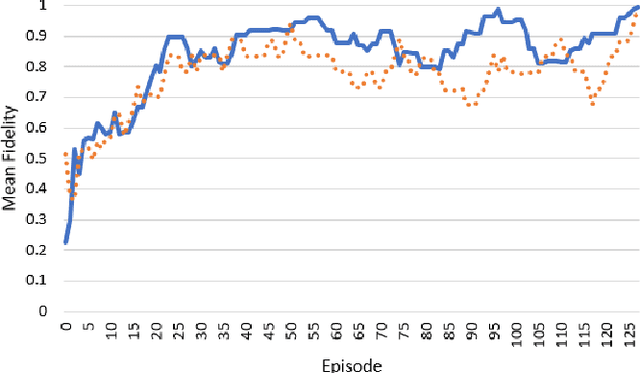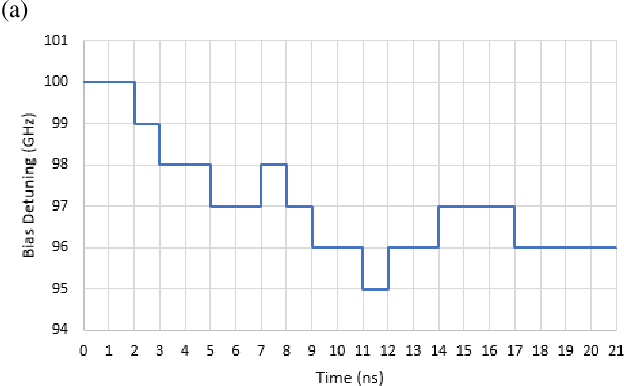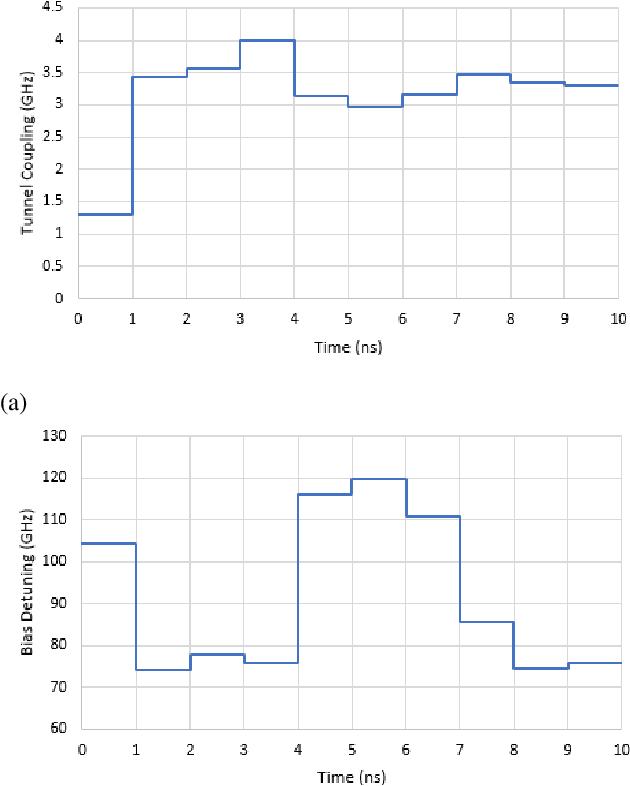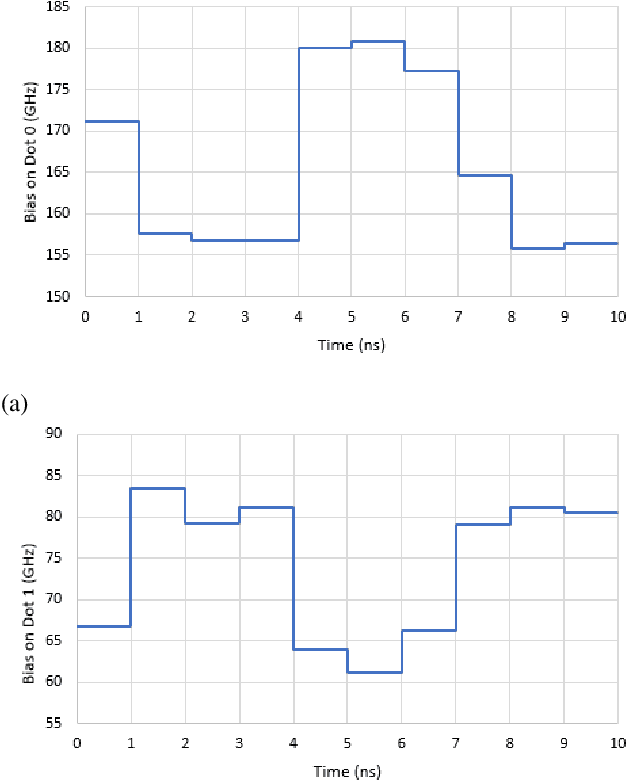A. Y. Matsuura
Designing high-fidelity multi-qubit gates for semiconductor quantum dots through deep reinforcement learning
Jun 15, 2020



Abstract:In this paper, we present a machine learning framework to design high-fidelity multi-qubit gates for quantum processors based on quantum dots in silicon, with qubits encoded in the spin of single electrons. In this hardware architecture, the control landscape is vast and complex, so we use the deep reinforcement learning method to design optimal control pulses to achieve high fidelity multi-qubit gates. In our learning model, a simulator models the physical system of quantum dots and performs the time evolution of the system, and a deep neural network serves as the function approximator to learn the control policy. We evolve the Hamiltonian in the full state-space of the system, and enforce realistic constraints to ensure experimental feasibility.
 Add to Chrome
Add to Chrome Add to Firefox
Add to Firefox Add to Edge
Add to Edge